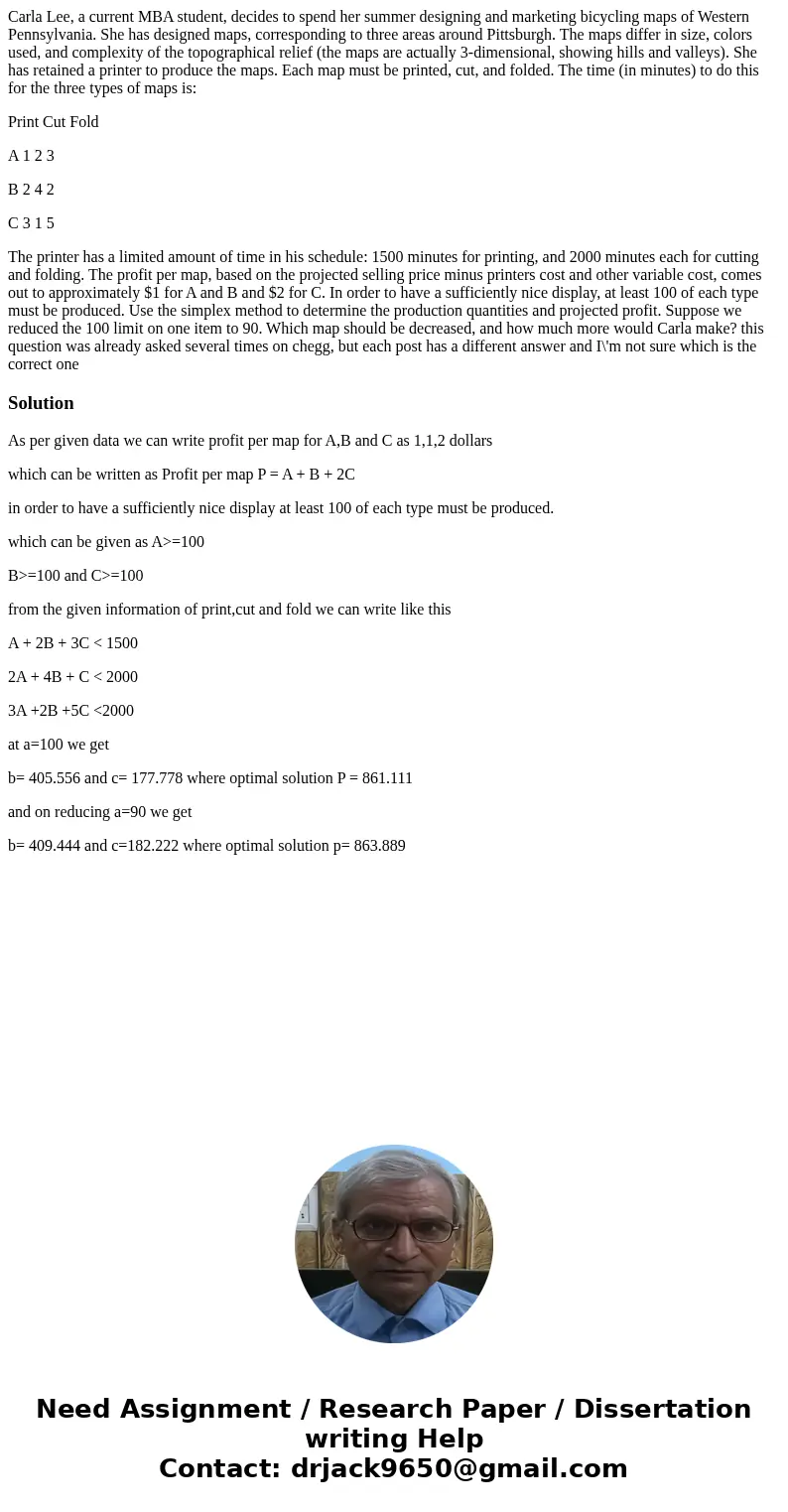Carla Lee a current MBA student decides to spend her summer
Carla Lee, a current MBA student, decides to spend her summer designing and marketing bicycling maps of Western Pennsylvania. She has designed maps, corresponding to three areas around Pittsburgh. The maps differ in size, colors used, and complexity of the topographical relief (the maps are actually 3-dimensional, showing hills and valleys). She has retained a printer to produce the maps. Each map must be printed, cut, and folded. The time (in minutes) to do this for the three types of maps is:
Print Cut Fold
A 1 2 3
B 2 4 2
C 3 1 5
The printer has a limited amount of time in his schedule: 1500 minutes for printing, and 2000 minutes each for cutting and folding. The profit per map, based on the projected selling price minus printers cost and other variable cost, comes out to approximately $1 for A and B and $2 for C. In order to have a sufficiently nice display, at least 100 of each type must be produced. Use the simplex method to determine the production quantities and projected profit. Suppose we reduced the 100 limit on one item to 90. Which map should be decreased, and how much more would Carla make? this question was already asked several times on chegg, but each post has a different answer and I\'m not sure which is the correct one
Solution
As per given data we can write profit per map for A,B and C as 1,1,2 dollars
which can be written as Profit per map P = A + B + 2C
in order to have a sufficiently nice display at least 100 of each type must be produced.
which can be given as A>=100
B>=100 and C>=100
from the given information of print,cut and fold we can write like this
A + 2B + 3C < 1500
2A + 4B + C < 2000
3A +2B +5C <2000
at a=100 we get
b= 405.556 and c= 177.778 where optimal solution P = 861.111
and on reducing a=90 we get
b= 409.444 and c=182.222 where optimal solution p= 863.889

 Homework Sourse
Homework Sourse